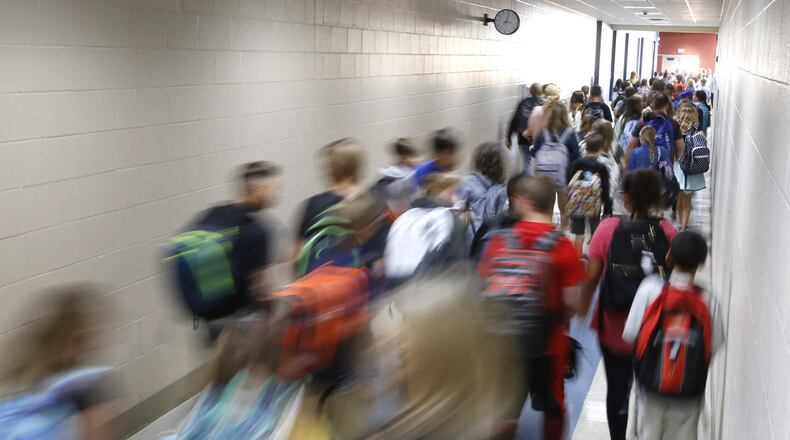Many local schools surveyed by the Dayton Daily News recently reported more student behavior problems or an increased number of referrals from parents or teachers for mental health services. That comes as kids have confronted new mental health challenges the past two years due to the traumas of the COVID-19 pandemic and its disruptions to school and daily life.
Several local schools have taken advantage of state funding or used federal COVID-19 dollars and added or expanded programs to help struggling students cope.
Between October 2019 and June 2021, Ohio dedicated $675 million toward the Student Wellness and Success program, which includes funding local schools can use for mental health services. Last summer, the legislature appropriated funds to continue the program until the end of the next school year.
To get the funding, schools had to implement a program for one of the approved causes of the funding, such as physical and mental health or welfare and foster services; work with an approved local community partner, such as a hospital or county mental health board; and submit a report detailing what their plans were at the end of each fiscal year.
Dayton Public Schools used part of their funds to hire resiliency coordinators for each school through a partnership with Dayton Children’s Hospital, which helped the district streamline mental health care, particularly in West Dayton, the district said.
The coordinators figure out what a student needs, help to connect the student to that service and act as case managers for kids in long-term counseling, said Elizabeth Lolli, Dayton Public Schools superintendent.
Lolli said the district plans to continue using the resiliency coordinators. She said parents’ satisfaction in how the school has handled students’ needs has increased and there is better communication about student progress.
“By partnering with one organization to serve the entire district — rather than multiple agencies partnering with specific schools — there is more accountability and coordination when it comes to providing for the mental health needs of students,” Lolli said.
But like shortages in many other school positions, the schools need more qualified people to meet demand.
Huber Heights schools have five mental health therapists on staff and they contract with a behavioral specialist through South Community, a nonprofit behavioral health group that works with adults and children.
But the school could use more therapists. Kate Little, director of special services for Huber Heights schools, said the district hopes South Community will be able to fill 10 more open positions for mental health therapists in Huber schools.
“It has been an ongoing struggle to find licensed providers during this school year since there is a shortage of mental health therapists across the state,” Little said.
Anaka Bushman, a spokeswoman for Beavercreek schools, called on the community to support parents, teachers and students during this stressful time. She also encouraged parents to ask for support from their local schools, especially if the parent thinks their child may need help.
“Give grace to students, staff, and each other as we are all presented with new challenges and situations that have resulted in change and uncertainty,” Bushman said. “Many adults and children have experienced trauma in the past two years and may be doing the best they can given their unique circumstances.”
About the Author

